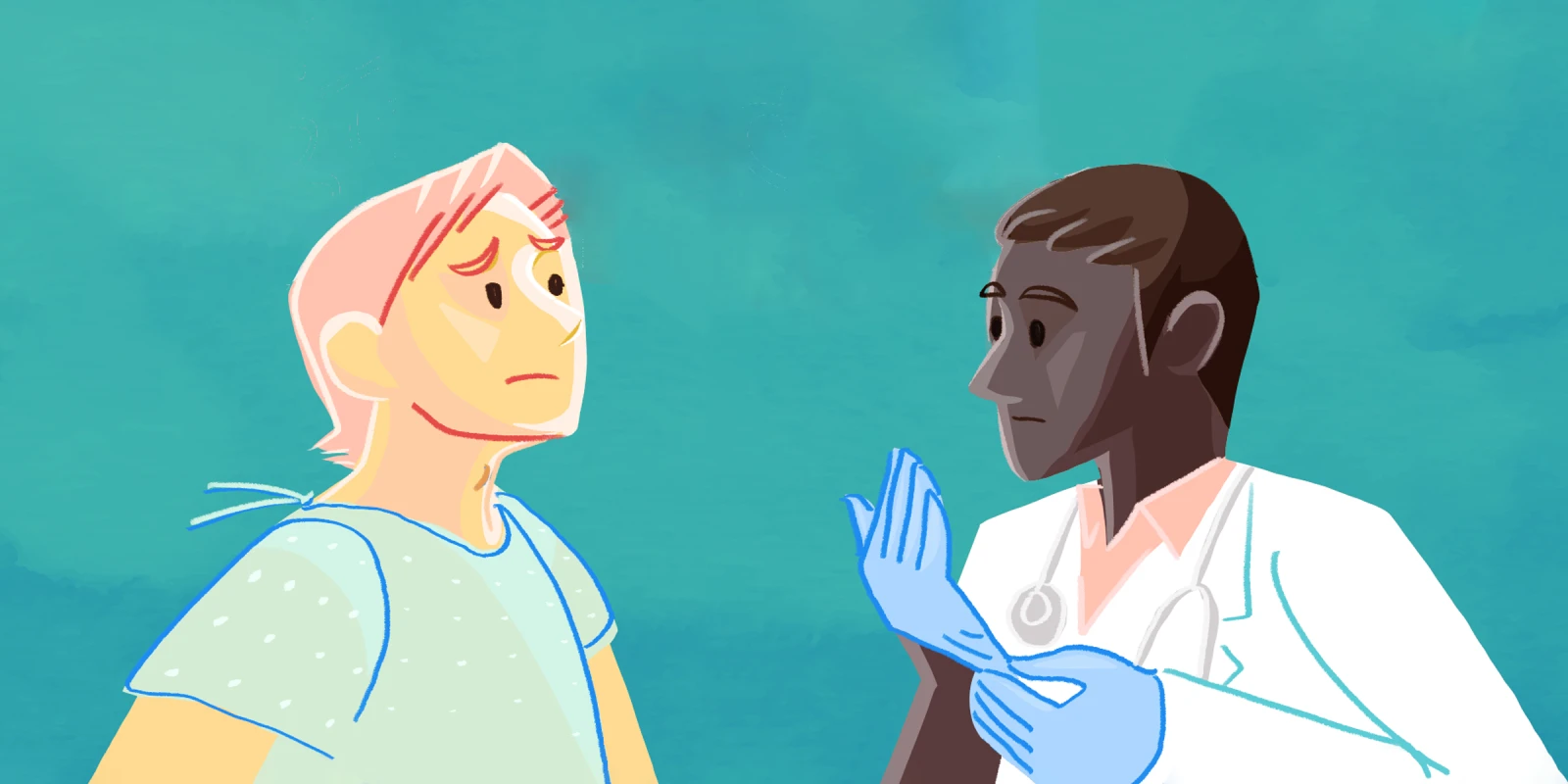Every now and then, a patient will present with a case that makes me gasp. A recent example was a teenager who came to my nonprofit pediatric clinic asking for a referral for an infection. When I entered the exam room, I saw a mature looking 20-year-old with dark curly hair and midnight black eyes sitting in a chair, with his right lower leg wrapped in a thick bandage and hidden out of sight. I casually asked what happened, and he glared at me, snapping back with, “It’s infected again.” His tone was sharp and accusatory. I gently asked him to remove the bandage, and as he slowly and reluctantly unwound the thick wrap, a large, crimson, pus-filled abscess that consumed his entire ankle came into view. Cellulitis was ferociously marching up his slender leg. His temperature was elevated and he said he was feeling nauseous with chills.
“What happened?” I asked again, with more alarm in my voice than I had anticipated.
“It just got infected again,” he repeated.
As I assessed the severity of the infection, I explained that I felt he needed to go to the ER for more immediate care, including incision and drainage, blood cultures, and IV antibiotics. He sighed deeply, rolled his eyes and dropped his head back, visibly detaching from the entire encounter. My initial internal response to his anger was to feel insulted: Why is he angry at me? I’m only trying to help. I decided to take a step back and dig for more of the story.
“You said your ankle is infected again … can you tell me what happened from the beginning?”
It started last spring when he was living with his grandparents on their farm out of state. He was walking across a field and his foot fell in a hole. “I heard the snap before I felt the pain.” Then he couldn’t walk. He was taken to a rural hospital and shortly after, sent to the OR for placement of a metal plate and screws. “The infections started pretty much immediately after the surgery,” he sighed. “The doctor up there said that the metal would probably need to be replaced, but it would take a while to get that done.” After that, he moved back home.
I looked up his local hospital records: numerous visits, multiple antibiotics, and a referral to an outside specialist who turned him away before seeing him for insurance reasons. I asked him what he wanted and he explained that he simply wanted someone to fix it, but that most people cared more about who was going to pay for it. I cringed. His resistance to repeating another trip to the ED was suddenly more understandable. To him, it was yet another passing of the baton, and a plan that had repeatedly failed. But, the reality remained that he did indeed need emergency care. How could I get him to trust me on this? How could I assure him, as I explained the risks of severe systemic infection, that what I was recommending was driven by my wanting the best for him? I felt like I was pleading with him.
Eventually, he agreed to go to the ER. As he hobbled out of the clinic, my own questions lingered. I couldn’t fix the ankle single-handedly — but could I do something to help mend the break in trust that had been festering?
As clinicians, we frequently encounter situations in which mistrust can germinate: financial variables, incorrect paperwork, patients not following up or not understanding a treatment plan — mistrust can find a foothold in a multitude of ways. We use terms like “non-compliant patient,” “poor historian,” and “lost to follow-up” to put the onus on the patient and move on with our day. Rarely do we lean directly in to confront mistrust head on. However, without knowing and understanding it fully, the implications can be severe. For my adolescent patient with an infected ankle, mistrust bred hesitancy to seek medical care, suspicion of recommendations, and pessimism about possible outcomes. It hurt me to hear him say that he viewed the motive of medical professionals as driven by finances instead of genuine caring.
Mistrust can be defined as, “A valid response to a betrayal ... [that] leads to anxiety, anger, o[r] self-doubt.” With this definition in mind, it’s possible that the antidote to mistrust may be to help patients regain a sense of control over their care — to remove judgment and assure them that we can meet the barriers of the system as a team, or at least recruit the appropriate people to the care team. We need to be able to say to our patients that it is completely understandable that they feel the way they do, and not brush their concerns aside. For my teenager, instead of only offering information, I needed to accept his fear of being placated with a temporary solution and validate his suspicion that he’d be ignored. With his anger, he was telling me that he needed me to care about his ankle as much as he did.
I followed my patient’s course through the ED visit, admission to the medical floor, and referral to orthopedics. Currently, he is scheduled for hardware removal, which is good news for his ankle. But I fear there’s still a lot of work to be done in patching back together his trust in us. The hard work ahead includes gathering the whole story, identifying underlying concerns, touching base frequently, and acknowledging the reality of barriers that require concerted follow-through. Only by doing the hard work can we give the patient what they are truly asking of us.
Have you ever cared for a patient who had lost trust in health care? What was your antidote? Share your treatment plans for medical mistrust in the comments.
Kyra is a pediatric NP who trained in Denver, CO and now works in a neighborhood community clinic in the Bay Area. She loves having the opportunity to interact with families and their community as a whole. In her free time, Kyra enjoys spending time with her two kids doing anything that requires being outside in nature. Kyra is a 2021–2022 Doximity Op-Med Fellow.
All names and identifying information have been modified to protect patient privacy.
Illustration by April Brust







